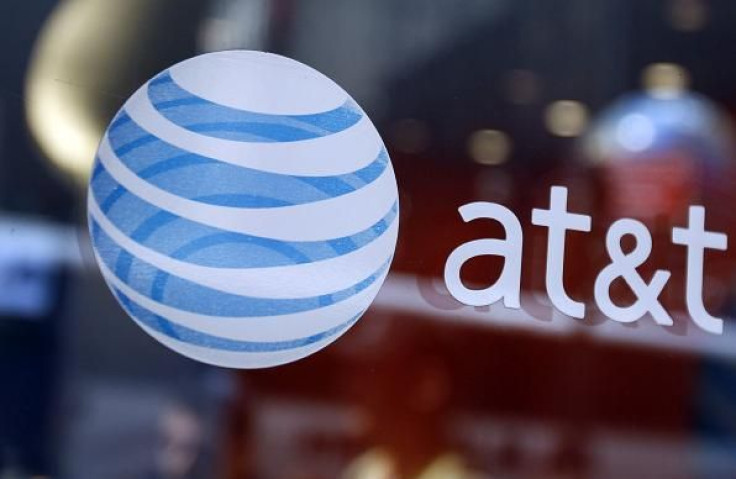AT&T-DirecTV Merger Rumor: Satellite Customers Vow To Flee If Companies Join Forces
Merged company would be formidable competition for Comcast-TWC

In another sign of snowballing consolidation in the pay-TV industry, AT&T Inc. (NYSE:T) is said to be mulling an acquisition of DirecTV (NASDAQ:DTV) -- but some loyal customers of the satellite-TV company are praying it’s a false rumor.
Social media channels lit up on Thursday with vocal outcries from DirecTV customers vowing to abandon the company should it “sell out” to the Dallas-based telecom giant, which has a reputation for poor customer service and technical inefficiency. AT&T recently topped a Ranker.com “Worst Satisfaction” consumer survey, and the company was once the target of one of the most memorable hashtags in history -- #ATTfail -- through which Twitter users aired their grievances over the notorious networking problems that plagued early-model iPhones, when the popular device was exclusive to AT&T.
Word of possible merger talks, which came from anonymous sources cited by the Wall Street Journal on Thursday, appears to be igniting a collective déjà vu of sorts among satellite-TV subscribers who say they refuse to be strong-armed into becoming AT&T customers.
.@DIRECTV If you sell out to @ATT I will cancel my service. #ATT is the WORST company ever!!!
- Agnostafarian (@Timmmaaay) May 1, 2014Hey @DIRECTV if you get taken over by @ATT I will drop you and start pirating EVERYTHING. Hope your congressman bought something nice.
- Darren (@thedrun) May 1, 2014No!!! I don't want to have to cancel :( RT @CNET: @ATT reportedly courting @DirecTV for possible acquisition http://t.co/nPldTLjMlq
- Jennifer Lee Kirk (@The_Jenius) May 1, 2014Hey @DIRECTV, if you join @att you're losing this customer. Just saying.
- hooblus (@hooblus) May 1, 2014Neither AT&T nor DirecTV have commented on the rumor. Consumer advocates, many of which have been adamantly in their opposition to the proposed merger between Comcast Corporation (NASDAQ:CMCSA) and Time Warner Cable Inc. (NYSE:TWC), are likely to object. While a merged AT&T-DirecTV would create a formidable competitor for the merged Comcast-TWC, the deal would also lend weight to the argument among diversity proponents that consolidation begets more consolidation. The argument, as illustrated for years by consolidation critics, is that as media firms grow, others have to grow simply to compete.
At present, critics of the Comcast merger are hesitant to express their thoughts on the possibility of a merged AT&T-DirecTV, as neither company has officially acknowledged that a deal is being considered. “We tend not to comment on rumors, even big ones,” a spokesman for Free Press, organizer of the anti-Comcast “Stop the Merger” campaign, told International Business Times.
The Journal, citing “people familiar with the situation,” reported that AT&T has only “approached” DirecTV about a possible acquisition. The deal, though, would combine DirecTV’s 20 million satellite subscribers with AT&T’s 5.7 million landline-based TV customers. Together the company’s nearly 26 million customers would rival the 30 million customers Comcast would have if its merger with Time Warner passes muster with federal regulators.
The Comcast merger is likely to be seen as a test case for how regulators will look at a potential merger between AT&T and DirecTV. Comcast’s argument has been that the merger doesn’t violate antitrust laws because Comcast and Time Warner Cable don’t compete in the same markets. AT&T may make a similar pitch: It already has a partnership with DirecTV to offer services in markets where its U-Verse digital TV and Internet service doesn’t currently reach.
But technologically speaking, the situations are not entirely parallel. DirecTV already has a major competitor in Dish Network (NASDAQ:DISH), while AT&T’s U-Verse, launched in 2006, is still in its relative infancy. A merger is not likely to set off as many regulatory red flags as combining the country’s two largest cable-TV providers, said John Barrett, a consumer analytics analyst for Parks Associates, a market research firm that specializes is consumer technology. “My suspicion is that it’s going to be treated a little differently,” Barrett told IBTimes. “Because there are two satellite companies and AT&T is kind of a new entrant in the pay-TV market, I suspect there would be fewer eyebrows raised over that kind of a merger than Comcast and Time Warner.”
And how do customers fare amid all this consolidation? Most cable and telecom companies already rank low on customer service surveys, so the question of whether large-scale mergers will foster any kind of improvement is, to some extent, moot. But it’s telling that some customers, upon hearing the rumors Thursday, appear to be throwing up their hands as they consider their increasingly limited options in an increasingly lesser-of-evils world.
“Please DirecTV, do not sell to AT&T,” one person tweeted. “I will be forced to switch Comcast.”
Got a news tip? Email me. Follow me on Twitter @christopherzara.
© Copyright IBTimes 2024. All rights reserved.












